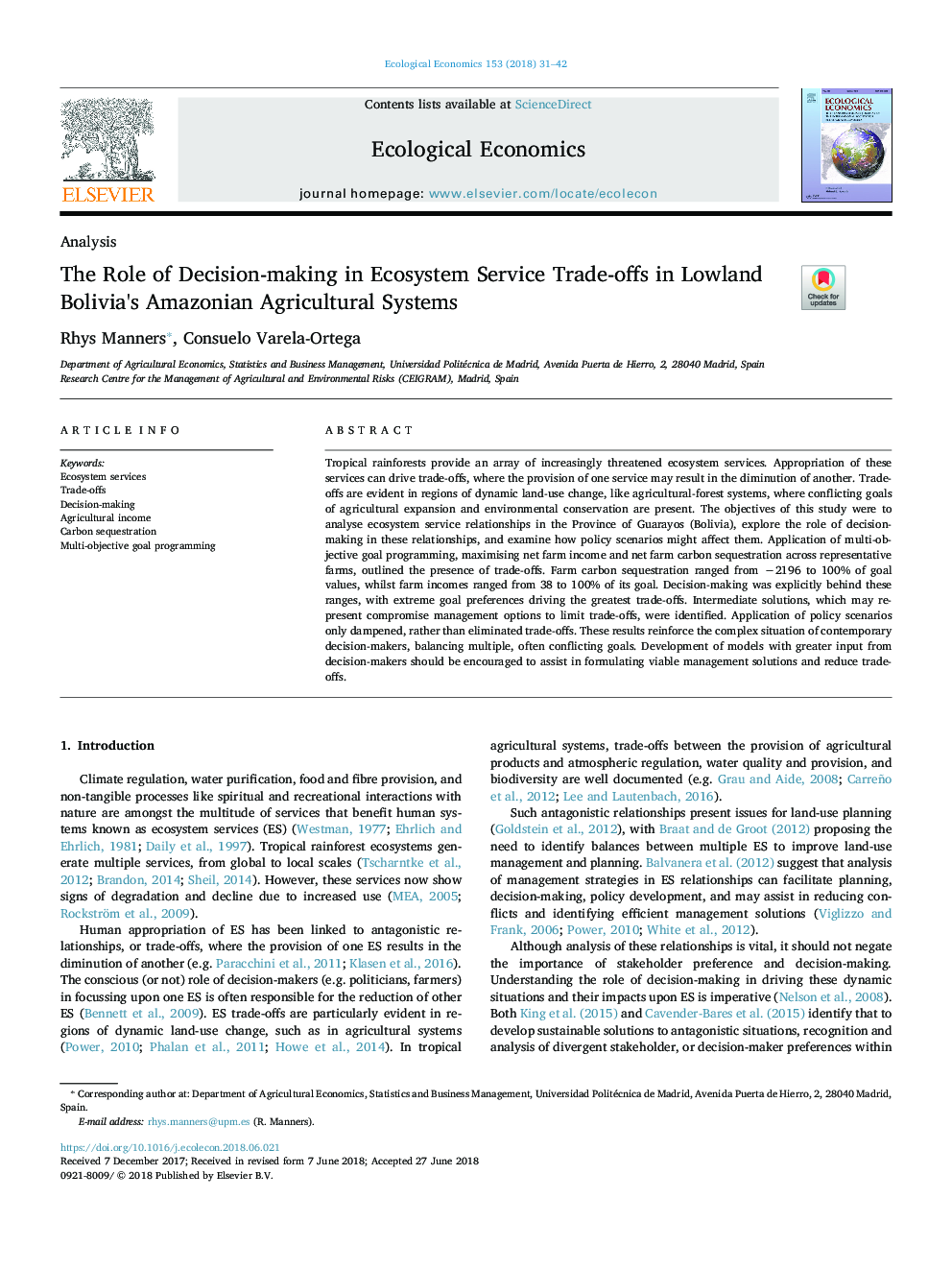| Article ID | Journal | Published Year | Pages | File Type |
|---|---|---|---|---|
| 7343684 | Ecological Economics | 2018 | 12 Pages |
Abstract
Tropical rainforests provide an array of increasingly threatened ecosystem services. Appropriation of these services can drive trade-offs, where the provision of one service may result in the diminution of another. Trade-offs are evident in regions of dynamic land-use change, like agricultural-forest systems, where conflicting goals of agricultural expansion and environmental conservation are present. The objectives of this study were to analyse ecosystem service relationships in the Province of Guarayos (Bolivia), explore the role of decision-making in these relationships, and examine how policy scenarios might affect them. Application of multi-objective goal programming, maximising net farm income and net farm carbon sequestration across representative farms, outlined the presence of trade-offs. Farm carbon sequestration ranged from â2196 to 100% of goal values, whilst farm incomes ranged from 38 to 100% of its goal. Decision-making was explicitly behind these ranges, with extreme goal preferences driving the greatest trade-offs. Intermediate solutions, which may represent compromise management options to limit trade-offs, were identified. Application of policy scenarios only dampened, rather than eliminated trade-offs. These results reinforce the complex situation of contemporary decision-makers, balancing multiple, often conflicting goals. Development of models with greater input from decision-makers should be encouraged to assist in formulating viable management solutions and reduce trade-offs.
Related Topics
Life Sciences
Agricultural and Biological Sciences
Ecology, Evolution, Behavior and Systematics
Authors
Rhys Manners, Consuelo Varela-Ortega,
